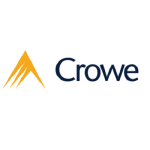The OECD has actively considered related-party commodity transactions under BEPS Action Plan 8 to 10 due to the importance of commodities in the global economy and the unique characteristics of commodity pricing.
Singapore is one of the largest commodity trading hubs in Asia and the commodity sector is estimated to contribute nearly 17% of Singapore’s GDP and had a value-added contribution of SG$73.7 billion (US$53.3 billion) in 2018.
Given the importance of the commodity industry to Singapore, the Inland Revenue Authority of Singapore (IRAS) has built on the OECD’s guidance and issued its own transfer pricing guidelines for commodity marketing and trading activities (henceforth referred to as the TP Guidelines) in May 2019.
The TP Guidelines provide a comprehensive understanding of the commodity trading segment and the related transfer pricing issues. These guidelines, which have been tailored to Singapore’s situation, and include a detailed value chain analysis, as well as the various ways in which commodity marketing and trading companies may operate.
IRAS’ focus on commodity marketing and trading entities
Since the issuance of the TP Guidelines, the IRAS has also stepped up its scrutiny on the transfer pricing policies and documentation put forth by commodity trading and marketing entities. Given the value and volumes of trade that take place in Singapore, even a small adjustment in the operating profit earned by the Singapore taxpayer can result in a significant increase in tax collection. This will be further compounded by the 5% surcharge under Section 34F of the Income Tax Act.
Based on experience, it can be noted that the IRAS is not focused on particular commodities. Their transfer pricing review has included commodity trading companies that deal in a range of products such as agro-commodities, chemicals, petrochemicals, steel, iron and cement.
The review process typically starts as part of the routine review of the taxpayer’s tax return with specific questions on transfer pricing that enquire on the arm’s-length nature of the related party transactions, the transfer pricing method adopted, as well as the existence of transfer pricing documentation and comparables analysis. Subsequently, a more detailed set of questions are raised by the IRAS, either under the purview of a transfer pricing audit or the IRAS’ transfer pricing compliance programme.
Defending transfer pricing arrangements
A transfer pricing review by IRAS typically focuses on the following aspects:
Fact-finding and functional analysis. Assessing where there is sufficient substance from a business/ operational standpoint to defend the transfer prices;
The transfer pricing methodology; and
The economic analysis.
The transfer pricing documentation needs to carefully discuss each of the above.
Market volatility
The commodity industry segment is dynamic with pricing decisions typically made within a 24 to 48-hour period. The market price movements in the commodity segment are highly uncertain. For example, oil prices in April 2020 turned negative for the first time in history. Most commodity traders were caught unaware by this market movement. The fluctuating market prices may also result in companies taking positions to minimise their losses due to the long or short inventory positions that they have taken.
The financial impact of these changes raises a key question on the function, risk profile of these entities. Hence, there is a need for the taxpayer to show with documentary evidence such as summary of meetings, e-mail trails, sales and purchase contracts, and freight quotes to prove that it has the capacity to make decisions, and/or to exercise authority, and whether they are able to weather the financial risks associated with these trades
CUP method
If the taxpayer has applied the comparable uncontrolled price (CUP) method or the quoted CUP method, the taxpayer should maintain evidentiary support to show the linkage between the date on which the transacting parties formally entered into an agreement with the date of publication of the reference report/price quote on exchange market. Where there are deviations, the taxpayer should document the reasons for the deviations.
Referencing transactions
Whether the Singapore taxpayer sells to a related-party or buys from a related-party, the taxpayer must be able to provide a detailed walkthrough of how they determined the transfer price with reference to market pricing. If an alternative method is used for the outcome testing approach, the taxpayer should be able to explain why the price-setting and the outcome testing methodologies are different.
Based on the analysis included in the TP Guidelines, it is clear that the IRAS has a robust understanding of the issues that commodity marketing and trading entities face. In recent years, there has also been increased scrutiny from foreign tax authorities on commodity trading and marketing entities incorporated in Singapore.
In order for Singapore taxpayers to invoke the mutual agreement procedure (MAP) with IRAS to manage dispute resolution, contemporaneous transfer pricing documentation is required. In addition to contemporaneous documentation, taxpayers operating in this industry should ensure they have robust and practical transfer pricing analysis to defend transfer prices.
Sowmya Varadharajan
T: +65 6221 0338 Ext. 844












